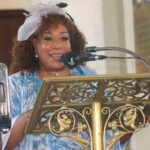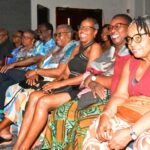The government is accelerating its training of teachers to manage mixed-ability classrooms, as part of a major initiative to integrate students with special needs into mainstream schools soon, Minister of Education Kay McConney has said.
It is hoped that by doing so, she said, the stigma associated with having different learning abilities will dissipate and those students would not fall by the wayside.
She said: “From the government’s perspective we have said that students who have special needs and special exceptionalities, that we want to ensure that we create a space for every single child . . . the intention is that across all schools we will be able to integrate all students in mixed ability classes where all students are able to learn and where we are able to provide the right types of interventions for them. When we say interventions this is dependent on how a child learns the pace at which a child learns that we’re able to make sure that our teachers are properly equipped to be able to work with them.
“That is why we have put such significant investment in the training of teachers to make sure that all schools are able to create the right kind of environment. I believe that over the last 20 months or so, more than 3 000 teachers and school leaders have been trained. Erdiston Teachers Training College is ramping up its effort towards training teachers who can not only deal with students with special needs but who now can handle classrooms where you have students with mixed abilities because some teachers and some environments are such that . . . We recognise now that we need to prepare our learning facilitators because they’re not just teachers, teachers must become learning facilitators able to facilitate the learning of any child in a classroom where those children in there have mixed ability.”
McConney said children with learning challenges were often deemed as “slow learners”, which carried a negative and degrading connotation. She said that with the new approach to learning the ministry was implementing, that way of thinking would eventually phase out.
“I think we all have to have individual responsibility for how we treat each other,” the education minister said. “There’s public education that has to [teach that] people are not slow learners, they just learn differently. I think too we have to build the confidence within those students so that those students understand that there is absolutely nothing wrong with them. It is that the system needs to learn how to cater to the way they learn because all of us can learn; it is just a matter of creating the system that is sensitive to the way whether you learn visually whether you are an auditory learner whether you’re a kinesthetic meaning that you touch and feel [as part of learning].
“We often say in our everyday lives: ‘This person, he’s really good with his hands or she’s really good with her hands.’ But you put a book in their hand and then tell them memorise all this stuff they’re not necessarily good at it but take the same concept and make it practical and they excel. These environments, as well as the project-based approach to how we want to go forward doing education, means that you let them work on real things where you figure out those people who are really good by getting involved with it and using their hands and their minds and applying, those who will be able to read about it and those who can discuss and get it better; we all learn differently and I think that it has to start with us as adults governing our own towns and the way in which we refer to our children.”
The minister added that developing self-esteem programmes at schools was also necessary.
“We [also] have to build self-love within these students that when people say cruel things, and they can’t control the tongues of those who, I will say are ignorant, that they do not get their self-esteem destroyed.”
She added that the ministry was implementing a new initiative to ensure school children show greater appreciation towards students with special needs.
“The Chief Education Officer has started meeting with some of the persons of different schools [and] school children. What we’re asking the schools around here is when these children are on the school bus. We need to be inculcating in the other children travelling on the school bus an understanding and a love for each other and the way we treat each other so that they are not carrying out what they hear.
“I say it over and then children live what they learn. A lot of these children will say what they say and they will treat others in an unkind way because that’s what they learned. Let us teach them differently . . . It (change) will take time because we’re dealing with a culture. (SZB)
The post Govt expanding training of teachers for inclusive education push appeared first on Barbados Today.


